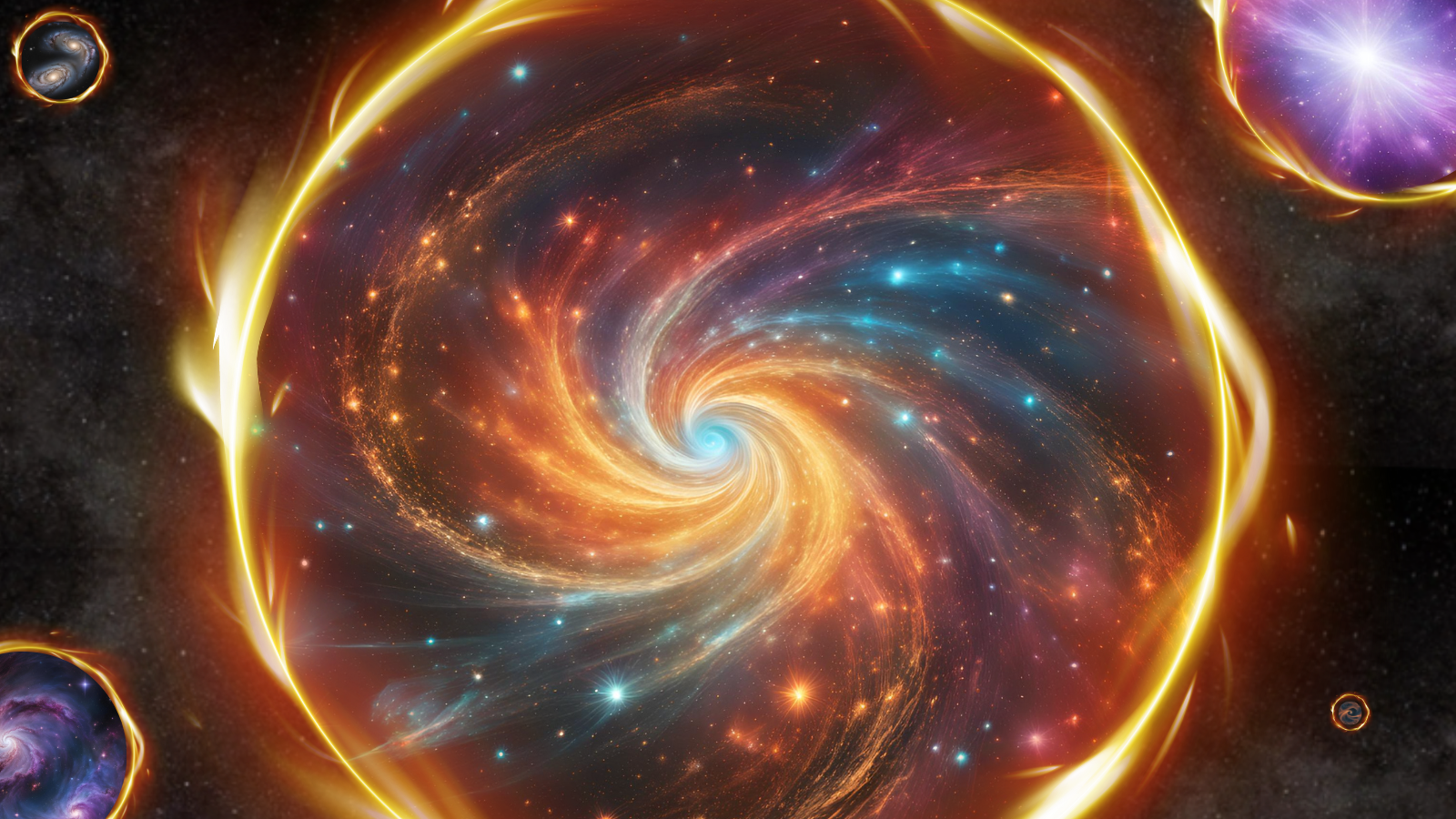**What is Dark Energy?**
Dark energy is one of the most enigmatic and profound concepts in modern cosmology, representing a mysterious force that permeates all of space and drives the accelerated expansion of the universe. Discovered in the late 1990s through observations of distant supernovae, dark energy is thought to account for approximately 68% of the total energy content of the cosmos. Unlike ordinary matter, which interacts through gravity and electromagnetism, dark energy appears to have a repulsive effect, pushing galaxies apart and causing the universe to expand at an ever-increasing rate. The precise nature of dark energy remains unknown, leading to various theories, including the cosmological constant proposed by Albert Einstein, and more speculative ideas such as scalar fields or modifications of general relativity. Its elusive properties challenge our current understanding of physics and continue to spur extensive research and debate among scientists.
**Why Does Dark Energy Seem to Be Weakening?**
Recent observations have raised intriguing questions about the behavior of dark energy over cosmic timescales. While it has been instrumental in the accelerated expansion of the universe, some astronomers and physicists suggest that dark energy might not be a constant force but may be changing in strength. This idea stems from the analysis of various cosmic phenomena, including the distribution of galaxies and the Cosmic Microwave Background radiation. According to some models, dark energy could be decreasing in intensity, potentially leading to a future where its influence diminishes significantly. This concept has led to the development of alternative theories, such as quintessence, which posits that dark energy consists of a dynamic field that evolves over time. Understanding why dark energy appears to be weakening could provide crucial insights into the ultimate fate of the universe and could reshape our comprehension of fundamental physics.
**Is Our Universe Part of a Larger Multiverse?**
The concept of a multiverse suggests that our universe may be just one of many, existing alongside a potentially infinite number of other universes, each with its own distinct laws of physics, constants, and properties. This idea arises from various theoretical frameworks, including string theory and quantum mechanics, which imply that multiple dimensions and universes could exist beyond our observable reality. The implications of a multiverse are profound, as they challenge our conventional understanding of existence and reality. If our universe is part of a larger multiverse, it raises questions about the nature of cosmological constants, the fine-tuning of physical laws, and the very definition of "universe." With ongoing advancements in theoretical physics and cosmology, researchers are exploring the ramifications of the multiverse hypothesis and whether it can be tested or observed indirectly through cosmic phenomena.
**What Lies Beyond the Boundary of a Black Hole?**
The boundary of a black hole, known as the event horizon, represents a point of no return; once an object crosses this threshold, it cannot escape the black hole’s gravitational pull. However, what lies beyond this enigmatic boundary remains one of the greatest mysteries in astrophysics. Classical physics suggests that as one approaches the singularity at the core of a black hole, gravitational forces become infinitely strong, leading to the breakdown of the known laws of physics. Theories about what happens inside a black hole vary widely, from the idea that matter is crushed to infinite density to the possibility of a wormhole connecting different regions of spacetime. Some physicists propose that information may not be lost inside a black hole, as suggested by the holographic principle, which posits that all information about matter is stored on the event horizon. This raises profound questions about the nature of reality, information, and the universe itself, highlighting the need for a deeper understanding of quantum gravity and the unification of general relativity with quantum mechanics.
A spinning universe could crack the mysteries of dark energy and our place in the multiverse - Space

